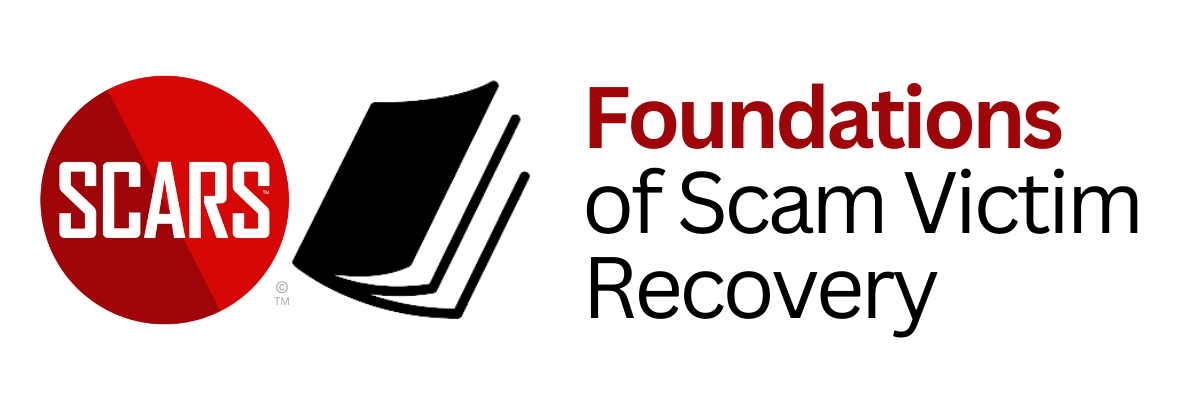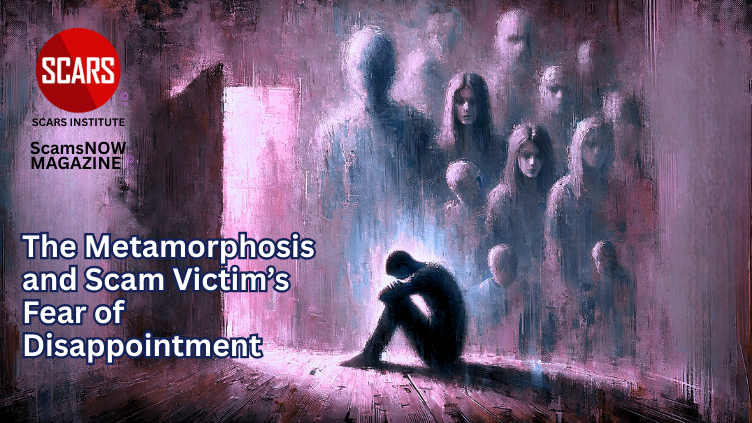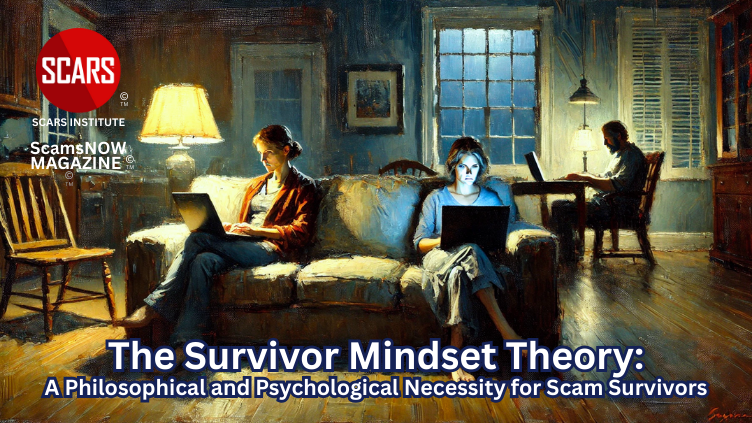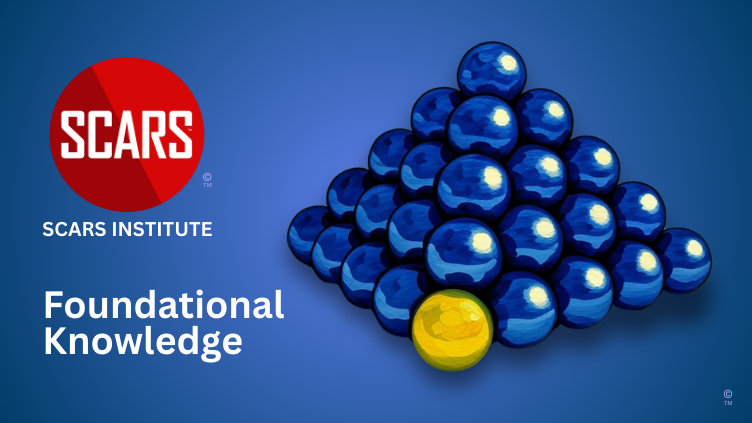The Survivor Mindset Theory
A Philosophical and Psychological Necessity for Scam Survivors
Primary Category: Philosophy and Foundations of Scam Victim Recovery
Intended Audience: Scam Victims-Survivors / Family & Friends
Authors:
• Tim McGuinness, Ph.D., DFin, MCPO, MAnth – Anthropologist, Scientist, Polymath, Director of the Society of Citizens Against Relationship Scams Inc.
About This Article
The Survivor Mindset Theory by Dr. Tim McGuinness emphasizes the critical importance of developing and maintaining a resilient psychological and philosophical framework to protect scam survivors from future victimization. Recovery from a scam is not simply a matter of optimism or reassurance that one won’t fall prey again. Instead, it requires continuous self-awareness, behavioral adaptation, emotional resilience, and lifelong learning. Philosophers such as A.C. Grayling, William James, Marcus Aurelius, and Bertrand Russell provide foundational insights into this mindset, highlighting the necessity of rigorous self-reflection, disciplined habits, and emotional control.
Psychological research confirms these philosophical principles, showing that actively engaging with one’s vulnerabilities and consistently updating knowledge significantly reduces the risk of repeated scams. Survivors often become victims again when they prematurely assume they’re immune, failing to recognize that ongoing vigilance and adaptation are essential. By integrating these philosophical teachings and psychological practices into daily life, scam survivors can build lasting resilience, personal empowerment, and a robust defense against future exploitation, ultimately transforming their trauma into enduring strength.

The Survivor Mindset Theory: A Philosophical and Psychological Necessity for Scam Survivors
An Overview of the Survivor Mindset Theory by Dr. Tim Mcguinness
Introduction
If you’ve ever been targeted or manipulated by a scam, you already know that the path to recovery involves much more than simply acknowledging your experience. It requires a shift in mindset—a conscious decision to approach life differently and to remain continually vigilant. Developing and maintaining what we call a “survivor mindset” is not just helpful; it’s absolutely essential. It’s your most robust defense against future exploitation, and a foundational element in reclaiming your sense of self, control, and security.
Understanding the Survivor Mindset
The survivor mindset isn’t about mere optimism or casual reassurance that “it won’t happen again.” In fact, such simplistic affirmations can be dangerously misleading. Philosopher A.C. Grayling argues that genuine knowledge emerges from continuous inquiry, self-reflection, and adaptability. Applying this philosophy, the survivor mindset demands rigorous self-awareness, behavioral adaptation, emotional resilience, and perpetual learning. Recovery is not about achieving immunity to deception but about recognizing vulnerability as a constant factor, empowering yourself through informed vigilance.
Awareness as the Foundation
Philosophically, awareness has long been heralded as a cornerstone of personal freedom and autonomy. A.C. Grayling highlights that the examined life—one marked by self-awareness and intentional reflection—is central to genuine human flourishing. Applied to scam recovery, awareness means understanding precisely how and why you were targeted and manipulated. It’s the willingness to confront uncomfortable truths about your own vulnerabilities, rather than avoiding or denying them. Research from psychology consistently emphasizes the importance of awareness in trauma recovery, noting that confronting one’s vulnerabilities significantly reduces the likelihood of re-victimization.
Behavioral Changes and the Necessity of Adaptation
A core element of the survivor mindset involves behavioral changes. Philosopher William James proposed that habits shape our identity and determine our future actions. To effectively guard against future scams, you must consciously change your habits—shifting from a passive or overly trusting approach to one rooted in cautious skepticism and evidence-based decision-making. Scam survivors who actively adapt their behavior by setting clear personal boundaries, scrutinizing unsolicited communications, and establishing safe routines significantly reduce their vulnerability. Behavioral adaptation reinforces awareness, creating a sustainable cycle of vigilance and safety.
Emotional Resilience: The Power of Stoicism
Another critical facet of the survivor mindset is emotional resilience, and here the philosophical school of Stoicism offers powerful insights. Epictetus and Marcus Aurelius taught that while external events are beyond your control, your response to them remains firmly within your power. For a scam survivor, cultivating emotional resilience means developing the ability to regulate negative emotions—such as shame, guilt, or anxiety—that scammers often exploit. Modern psychological studies echo Stoic teachings, demonstrating that emotional resilience not only aids recovery but serves as a powerful protective factor against future manipulation. Resilience allows you to remain calm and clear-headed, even in emotionally charged or deceptive scenarios.
Continuous Learning: Lifelong Vigilance
Continuous learning represents the intellectual backbone of the survivor mindset. A.C. Grayling emphasizes lifelong education as essential to human progress and well-being, advocating for a constant renewal and broadening of our understanding. Scam survivors who embrace this philosophy consistently educate themselves on evolving scams and psychological manipulation techniques, never resting on the assumption that they know enough. The scam landscape constantly changes, requiring an agile mind equipped to recognize new threats. Research confirms that survivors committed to ongoing learning dramatically reduce their susceptibility to repeated victimization.
Why Survivors Become Victims Again
A frequent yet preventable tragedy is the cycle of re-victimization. Often, this occurs because individuals prematurely conclude their recovery journey, mistakenly believing they’re sufficiently prepared to avoid future scams. Psychologically, this phenomenon aligns with cognitive biases such as optimism bias and confirmation bias, where individuals underestimate their risk and overlook warnings. Without the sustained reinforcement of their survivor mindset, individuals become vulnerable again. Philosopher Bertrand Russell argued that genuine wisdom includes recognizing one’s limitations and vulnerabilities, highlighting the importance of humility and vigilance rather than overconfidence.
Philosophical and Psychological Synergy
Integrating philosophical insights with psychological principles provides a robust framework for understanding and maintaining the survivor mindset. Philosophically, maintaining a survivor mindset aligns with the Socratic tradition of constant questioning and the Stoic commitment to self-control and rationality. Psychologically, it aligns with cognitive-behavioral theories that emphasize awareness, habit formation, emotional regulation, and lifelong learning as essential to behavioral change and trauma recovery. Together, these disciplines reinforce the importance of not just surviving, but thriving beyond your experience.
Building and Sustaining Your Survivor Mindset
Maintaining your survivor mindset requires daily practice and intention. It involves continuously feeding your awareness, reinforcing behavioral changes, nurturing emotional resilience, and committing to lifelong learning. Tools and resources provided by survivor communities and reputable organizations can support you in this ongoing effort. Consistency is key. Philosopher Aristotle famously said, “We are what we repeatedly do. Excellence, then, is not an act, but a habit.” Likewise, your survivor mindset isn’t built overnight—it’s cultivated through regular and disciplined practice.
Broader Life Applications of the Survivor Mindset
Importantly, the benefits of the survivor mindset extend beyond scam recovery. Applying this mindset in your broader life equips you with the tools to handle adversity, build stronger relationships, make wiser financial and emotional decisions, and navigate life’s uncertainties with clarity and confidence. The survivor mindset, when integrated into everyday life, becomes a comprehensive framework for resilience and personal empowerment, facilitating growth and preventing exploitation across various contexts.
Conclusion
The survivor mindset is a philosophical and psychological necessity for scam survivors. Far from a simple protective measure, it’s a dynamic, multifaceted approach rooted in awareness, behavioral adaptation, emotional resilience, and continuous learning. It leverages philosophical insights from thinkers such as A.C. Grayling, William James, Marcus Aurelius, and Bertrand Russell, integrating them with modern psychological research. To effectively protect yourself from future scams—and to thrive in your recovery—you must actively commit to nurturing and maintaining this mindset. It demands humility, vigilance, self-awareness, and consistent effort. Ultimately, the survivor mindset is not merely your best defense against scammers—it is your strongest foundation for personal resilience, growth, and lasting empowerment.
Please Rate This Article
Please Leave Us Your Comment
Also, tell us of any topics we might have missed.
Thank you for your comment. You may receive an email to follow up. We never share your data with marketers.
-/ 30 /-
What do you think about this?
Please share your thoughts in a comment above!
-/ 30 /-
What do you think about this?
Please share your thoughts in a comment above!
ARTICLE RATING
TABLE OF CONTENTS
CATEGORIES
MOST POPULAR COMMENTED ARTICLES
POPULAR ARTICLES
U.S. & Canada Suicide Lifeline 988
![NavyLogo@4x-81[1]](https://scamsnow.com/wp-content/uploads/2025/04/NavyLogo@4x-811.png)
ARTICLE META
WHAT PEOPLE ARE TALKING ABOUT LATEST SITE COMMENTS
See Comments for this Article at the Bottom of the Page
on Aren’t We All The Same? Aren’t We All Just Meat-Robots? An essay on Humanity by Tim McGuinness, Ph.D. – 2025: “excelente!!! la claridad y la profundidad del análisis son realmente impresionantes. Me aportó mucho leerlo. totalmente de acuerdo entre la…” Jul 16, 11:17
on Savior Syndrome And The Negative Consequences To Them And Other Scam Victims – 2023: “We must heal ourselves before trying to help or heal others. It is easy to get caught up in the…” Jul 16, 11:13
on Anger & Self-Radicalization – Recovery Psychology 2023: “Anger can be useful but most often it is destructive on the individual, their family and friends. I like that…” Jul 16, 10:59
on Residual Fear In Scam Victims – 2024 [UPDATED 2025]: “Thank you for another fantastic SCARS article! I have felt some fear lately, that has caused me to feel tense…” Jul 16, 10:10
on Living in the Invisible Safety Bubble – 2025: “Enlightening, thought provoking, and another SCARS article that gives me pause. Recovery is a process and takes time. In a…” Jul 16, 07:46
on Living in the Invisible Safety Bubble – 2025: “We have too many kinds of scams in Japan. Recently, there are impersonation scam of “fake Cardinal account” gathering fraud…” Jul 16, 07:27
on Motte and Bailey – A Cognitive Pattern & Defense Mechanism that Inhibits Honest Acceptance – 2025: “Important information for reflection for any survivor : -to what extent the Motte & Bailey method is present / still…” Jul 16, 07:21
on Arts and Crafts Can Significantly Aid in Recovery for Scam Victims – 2025: “Right after the scam, I didn’t want to do anything. I felt defeated and ashamed—as if I had betrayed both…” Jul 16, 00:01
on The Fallacy of Fallacies & Living in the Real World – Error in Reasoning that Makes an Opinion Seem Valid – 2025: “I didn’t know about fallacies and cognitive biases until I enrolled in the Survivor’s School. When I learned about them,…” Jul 15, 23:40
on Motivational Denial – Recovery Psychology – 2023: “I agree with this article about some motivational material Looking at motivational material is not a totally bad thing but…” Jul 15, 12:25
on Living in the Invisible Safety Bubble – 2025: “I thought this was a brilliant article….lots to think about now.” Jul 15, 09:39
on Arts and Crafts Can Significantly Aid in Recovery for Scam Victims – 2025: “I did not realize that things I like doing very much—knitting or sudoku—were so helpful in my recovery process. The…” Jul 14, 11:28
on Projection And Scam Victims: “The moment I realized I had a financial loss due to a scam I realized that I felt shame, guilt,…” Jul 13, 19:12
on Japanese Legend of Tears – When There Are No Words – 2025: “After discovering the fraud, the pain was enormous. I shed oceans of tears, but I always tried to do it…” Jul 13, 10:50
on The SCARS Institute Scam Victim Recovery Timeline – 2025: “Wow. I umm experienced some of the later curves. I have been bouncing back and forth between asking myself why…” Jul 11, 00:01
on Transference And Emotional Danger After The Scam – 2024: “Thank you for the kind but firm reminder that the person in the stolen profile photo has their own life.…” Jul 9, 01:26
on ‘Mental Defeat’ – The Unique Condition Of Giving Up – 2024: “Thank you for another great article. I can see from this article that mental defeat would be debilitating to a…” Jul 9, 00:49
on Trust: Romance Scams Betrayal And Scam Victims – 2024: “This provided valuable insight that I can identify with” Jul 8, 16:44
on A Scam Victim in Extreme Distress – Stopping the Pain – 2024: “Your trust issues are very understandable. We are very sorry this happened to you. We suggest that you contact an…” Jul 8, 14:42
on A Scam Victim in Extreme Distress – Stopping the Pain – 2024: “My online counselors advised me to check myself in. I went to the hospital because I was suicidal. After I…” Jul 8, 13:44
Important Information for New Scam Victims
Please visit www.ScamVictimsSupport.org – a SCARS Website for New Scam Victims & Sextortion Victims
SCARS Institute now offers a free recovery program at www.SCARSeducation.org
Please visit www.ScamPsychology.org – to more fully understand the psychological concepts involved in scams and scam victim recovery
If you are looking for local trauma counselors, please visit counseling.AgainstScams.org
If you need to speak with someone now, you can dial 988 or find phone numbers for crisis hotlines all around the world here: www.opencounseling.com/suicide-hotlines
Statement About Victim Blaming
Some of our articles discuss various aspects of victims. This is both about better understanding victims (the science of victimology) and their behaviors and psychology. This helps us to educate victims/survivors about why these crimes happened and not to blame themselves, better develop recovery programs, and help victims avoid scams in the future. At times, this may sound like blaming the victim, but it does not blame scam victims; we are simply explaining the hows and whys of the experience victims have.
These articles, about the Psychology of Scams or Victim Psychology – meaning that all humans have psychological or cognitive characteristics in common that can either be exploited or work against us – help us all to understand the unique challenges victims face before, during, and after scams, fraud, or cybercrimes. These sometimes talk about some of the vulnerabilities the scammers exploit. Victims rarely have control of them or are even aware of them, until something like a scam happens, and then they can learn how their mind works and how to overcome these mechanisms.
Articles like these help victims and others understand these processes and how to help prevent them from being exploited again or to help them recover more easily by understanding their post-scam behaviors. Learn more about the Psychology of Scams at www.ScamPsychology.org
SCARS INSTITUTE RESOURCES:
If You Have Been Victimized By A Scam Or Cybercrime
♦ If you are a victim of scams, go to www.ScamVictimsSupport.org for real knowledge and help
♦ Enroll in SCARS Scam Survivor’s School now at www.SCARSeducation.org
♦ To report criminals, visit https://reporting.AgainstScams.org – we will NEVER give your data to money recovery companies like some do!
♦ Follow us and find our podcasts, webinars, and helpful videos on YouTube: https://www.youtube.com/@RomancescamsNowcom
♦ Learn about the Psychology of Scams at www.ScamPsychology.org
♦ Dig deeper into the reality of scams, fraud, and cybercrime at www.ScamsNOW.com and www.RomanceScamsNOW.com
♦ Scam Survivor’s Stories: www.ScamSurvivorStories.org
♦ For Scam Victim Advocates visit www.ScamVictimsAdvocates.org
♦ See more scammer photos on www.ScammerPhotos.com
You can also find the SCARS Institute on Facebook, Instagram, X, LinkedIn, and TruthSocial
Psychology Disclaimer:
All articles about psychology and the human brain on this website are for information & education only
The information provided in this and other SCARS articles are intended for educational and self-help purposes only and should not be construed as a substitute for professional therapy or counseling.
Note about Mindfulness: Mindfulness practices have the potential to create psychological distress for some individuals. Please consult a mental health professional or experienced meditation instructor for guidance should you encounter difficulties.
While any self-help techniques outlined herein may be beneficial for scam victims seeking to recover from their experience and move towards recovery, it is important to consult with a qualified mental health professional before initiating any course of action. Each individual’s experience and needs are unique, and what works for one person may not be suitable for another.
Additionally, any approach may not be appropriate for individuals with certain pre-existing mental health conditions or trauma histories. It is advisable to seek guidance from a licensed therapist or counselor who can provide personalized support, guidance, and treatment tailored to your specific needs.
If you are experiencing significant distress or emotional difficulties related to a scam or other traumatic event, please consult your doctor or mental health provider for appropriate care and support.
Also read our SCARS Institute Statement about Professional Care for Scam Victims – click here
If you are in crisis, feeling desperate, or in despair, please call 988 or your local crisis hotline.
More ScamsNOW.com Articles
A Question of Trust
At the SCARS Institute, we invite you to do your own research on the topics we speak about and publish. Our team investigates the subject being discussed, especially when it comes to understanding the scam victims-survivors’ experience. You can do Google searches, but in many cases, you will have to wade through scientific papers and studies. However, remember that biases and perspectives matter and influence the outcome. Regardless, we encourage you to explore these topics as thoroughly as you can for your own awareness.















![scars-institute[1]](https://scamsnow.com/wp-content/uploads/2025/04/scars-institute1.png)
![niprc1.png1_-150×1501-1[1]](https://scamsnow.com/wp-content/uploads/2025/04/niprc1.png1_-150x1501-11.webp)

Leave a Reply